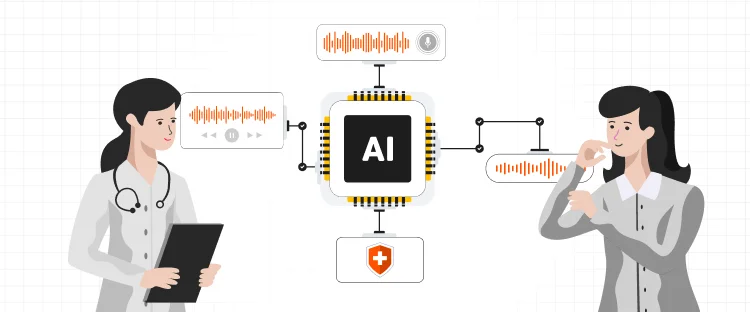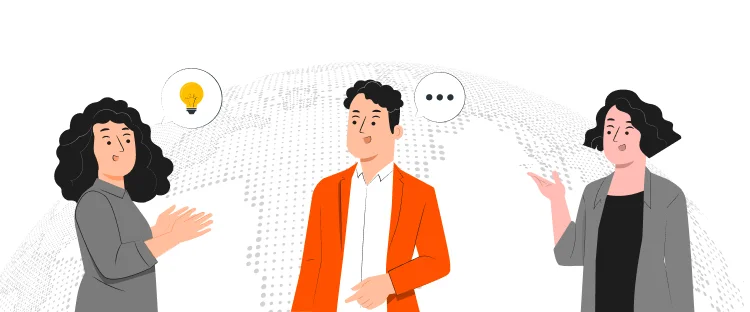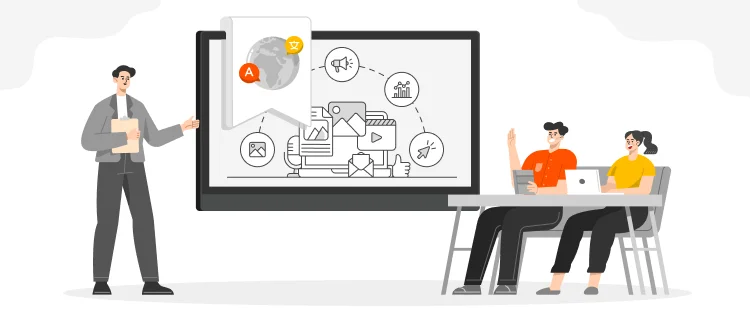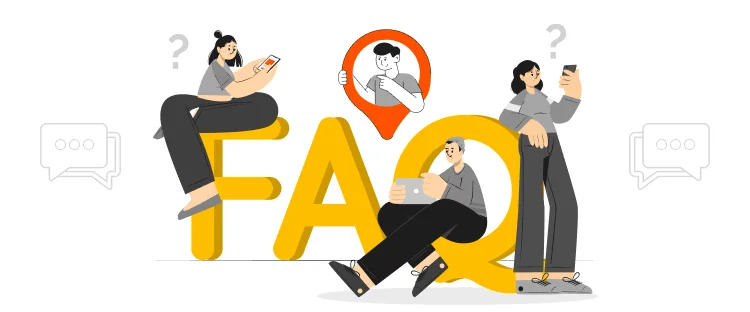Interpretation and translation play an integral role in many industries across the globe. While facilitating communication across language barriers may be the primary function of translation and interpretation, their role in certain industries is more critical and important than in others. An example of such an industry is the healthcare industry, where interpretation is required to ensure error-free communication and correspondence with patients. Medical interpreters are responsible for ensuring this medical interpretation is carried out effectively and efficiently to establish communication between patients and healthcare workers.
But are these medical interpreters really necessary in hospitals?

A medical interpreter is needed in hospitals when it becomes necessary to translate key medical information between two parties speaking different languages. If a patient does not speak or understand the language of the doctor treating him, language assistance is required to ensure effective patient care.
Medical interpreters are necessary for hospitals and healthcare settings due to the following reasons:
The biggest advantage that medical interpreters lend to a hospital or medical facility is the ease of communication between people who do not speak the same language. Visiting a doctor for medical treatment can be a nerve-wracking experience for patients, and not speaking the same language could make it even worse. A medical interpreter acts as a bridge between a doctor and a patient, ensuring communication is established between them. From discussing the treatment plans and dietary needs of the patient to any subsequent treatment guidelines, a medical interpreter can significantly increase the chances of successful treatment.
Medical treatments and procedures often involve conveying serious news to patients. In such cases, hospitals strongly discourage the involvement of bilingual relatives in communicating the news to patients. The reason is simple–relatives may knowingly (or unknowingly) convey the wrong information to the patient due to bias. A medical interpreter is an impartial individual who correctly conveys the correct information to the patient while sticking to the facts. Having an unbiased interpreter is important, as any misinformation or biased communication could have life-threatening consequences for the patient.
Qualified medical interpreters possess the highest degree of language fluency and are trained to “read between the lines”. This means that they know when to be transparent and when to assist in the conversation to convey sensitive information to the patient. This reduces the risk of misinformation substantially, eliminating any misguidance, incorrect course of treatment as well and extra costs to patients and healthcare providers.
A qualified and professional medical interpreter has a strong understanding of the cultural nuances and sensitivities that are part of society. When interpreting sensitive information about treatment, a medical interpreter picks up non-verbal cues such as gestures and postures, communicating information accurately and without any offense. This helps the patient and the healthcare provider fully understand each other, reducing the risk of misunderstanding a diagnosis and a treatment plan.
During the course of the COVID-19 pandemic, a huge number of cases came to light where medical interpreters had to convey sensitive information to patients and their relatives. A medical interpreter is important in such situations, as it eliminates any confusion between a patient and a healthcare provider. This helps to build trust between the patients and interpreters, and they start relying on him to convey sensitive information about treatment plans. Moreover, as these interpreters are trained to be impartial to any information, they correctly convey the sensitive parts of the diagnosis, thus building a bond of trust and faith between a patient and a doctor that is so necessary for a medical procedure.
In a healthcare setting, there is nothing worse than struggling with an illness and having the doctor dismiss what the patient is feeling. A professional medical interpreter addresses these patient concerns with full understanding and compassion, allowing them to feel at ease and calm during the communication of a medical diagnosis or a treatment plan. In short, an interpreter becomes a “lifeline” to be seen, heard, and fully understood by a patient.

Although medical interpreters facilitate unbiased, correct, and factual information between a patient and a doctor, there are certain limitations to consider. Firstly, a medical interpreter must be an expert at interpreting and have credible qualifications to fully understand and convey information. Secondly, he should preferably have specialized expertise in an area of the medical field. For example, patients seeking consultation about cardiology would prefer medical interpreters who have knowledge and experience in that field. Lastly, medical interpreters must be aware of the health regulations and laws governing their jurisdiction to ensure proper communication of medical information between patients and healthcare providers.
The medical field is a highly specialized field that requires interpretation and translation services for communication between patients and healthcare providers. This is why it is necessary to have expert medical interpreters available in every hospital and medical facility. Hospitals can approach professional translation and interpretation agencies for professional and reliable interpreters.

Colorado is said to be one of the best places to do business because the business environment is very friendly
Read More
The global marketplace has become an attractive place for brands and businesses, where they strive to create a presence of
Read More
CAD, or computer-aided design and drafting (CADD), is the use of computer technology for design and design documentation. CAD software
Read More
Many global companies, foreign governments and Iranian are hoping to see an increase in investment in Iran after declaring the
Read More
Artificial intelligence has taken a big space in almost every industry. There is also a widespread acceptance that AI is
Read More
Persuasion is all about manipulating other people behavior. At first it might sound immoral but it doesn’t have to be.
Read More
Now days everyone is searching for good ideas for their company they wanted to be more creative, they wanted to
Read More
Technology has now much diverse roots in this age of development. Now it is not wrong to say, that you
Read More
Localization is the practice of altering the functional properties of a product and also its characteristics. This is easily done
Read More


Document Translation
Professional document translation by native expertsApp Localization
Get more downloads by adapting your app for different target marketsVideo Translation
Multilingual translation and subtitling servicesWebsite Localization
Adapt your website into multiple contexts for global reachSoftware Localization
Adapt your software for global usersGame Localization
Reach new players with localized gameplayMTPE
Refine AI translations for natural fluencyBusiness Translation
Professional translation for business documents and websitesDTP & File Conversion
Professional DTP and File conversion, supporting multiple file formatsProofreading
Perfect your content with expert review© Copyright 2025 MarsTranslation